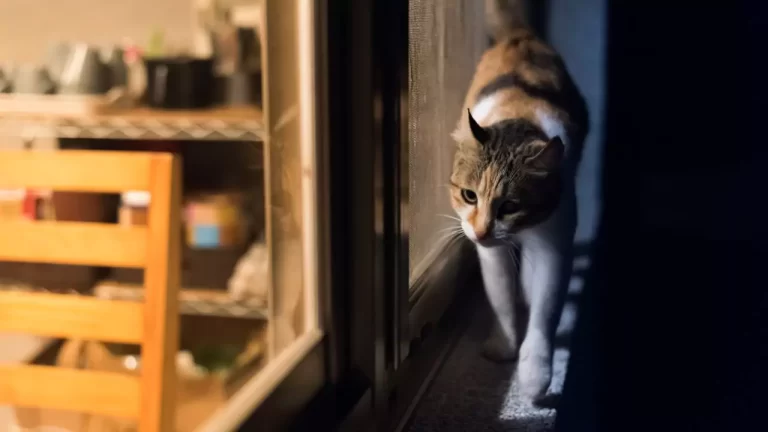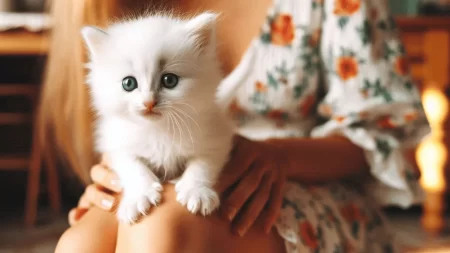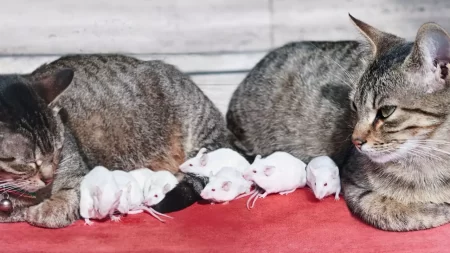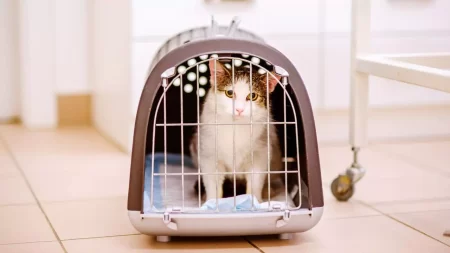No, cats are not nocturnal. While they tend to be more active at night, they are actually crepuscular – meaning they are most active during twilight hours.
Cats’ nighttime behavior stems from their natural instincts and preferences, not an innate nocturnal circadian rhythm.
Understanding Cat Behavior at Night
Crepuscular vs. Nocturnal
Nocturnal animals are exclusively active at night and sleep during the day. Crepuscular species like cats have peak activity levels at dawn and dusk. They tend to be somewhat active at night, especially domestic cats, but are not strictly nocturnal.
Natural Hunting Instincts
Cats are natural hunters, and their ancestry as solitary hunters continues to influence their behavior. At night, their prime hunting time, cats get a burst of energy and become more alert as their predatory instincts kick in. Darkness provides cover for stalking prey.
Influence of Artificial Lighting
Outdoor lighting and indoor lamps allow cats to see and navigate easily at night. This artificial illumination extends their active hours later than would occur naturally outdoors. The night seems normal to indoor cats, so they feel comfortable being lively and playful.
Reasons for Nighttime Activity
Reduced Daytime Distractions
The quiet environment and lack of disruptions at night motivate their energetic behavior. Without kids and adults around, cats can play undisturbed. Families’ nighttime routines also coincide with cats’ peaks in energy.
Cooler Temperatures
Cats dislike getting overheated. They are more comfortable being active when temperatures drop at night, especially during warm weather. Cooler conditions allow cats to play and explore while expending energy without risk of overheating.
More Active Prey
Nocturnal rodents and insects that cats hunt are abundant and active at night. Cats’ natural drive to hunt is aroused by this increased prey activity in darkness, stimulating their energetic nighttime behavior.
How to Manage Cat Activity at Night?
Establish a Routine
Create a regular, fulfilling daytime schedule including feeding, playtime, grooming, and environmental enrichment. This meets cats’ needs for activity and stimulation during their natural active periods in the day.
Provide Stimulating Toys
Interactive toys that challenge their hunting skills give cats an outlet for their energy. Puzzle feeders and towers with built-in toys occupy them during the evenings. This reduces restless, disruptive behavior at night.
Use Calming Aids
Products like calming pheromones and herbs can reduce nighttime activity. Providing cozy beds in quiet areas away from night disturbances also encourages restful sleep. Talk to your vet if your cat’s nighttime behavior seems extreme or disruptive.
In summary, cats are crepuscular hunters, not nocturnal. Their natural inclinations to sleep mostly in daylight and prowl around at night derive from evolutionary adaptations, not a biological imperative to be active after dark like some mammals.
Understanding these inborn tendencies, along with providing proper care and routine, allows for managing a cat’s increased liveliness at night. With the right environment and enrichment, cats can settle down for normal rest overnight.







